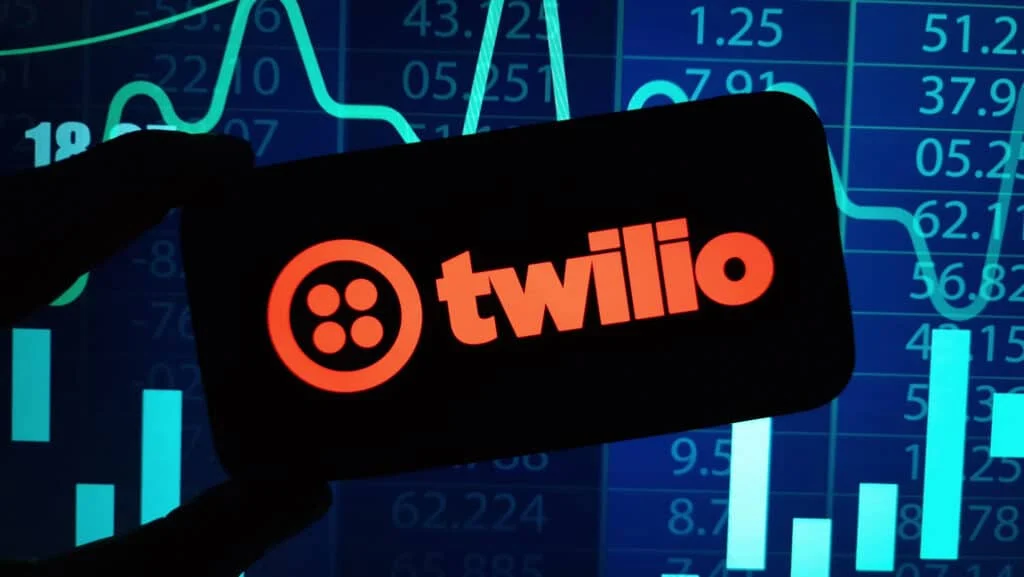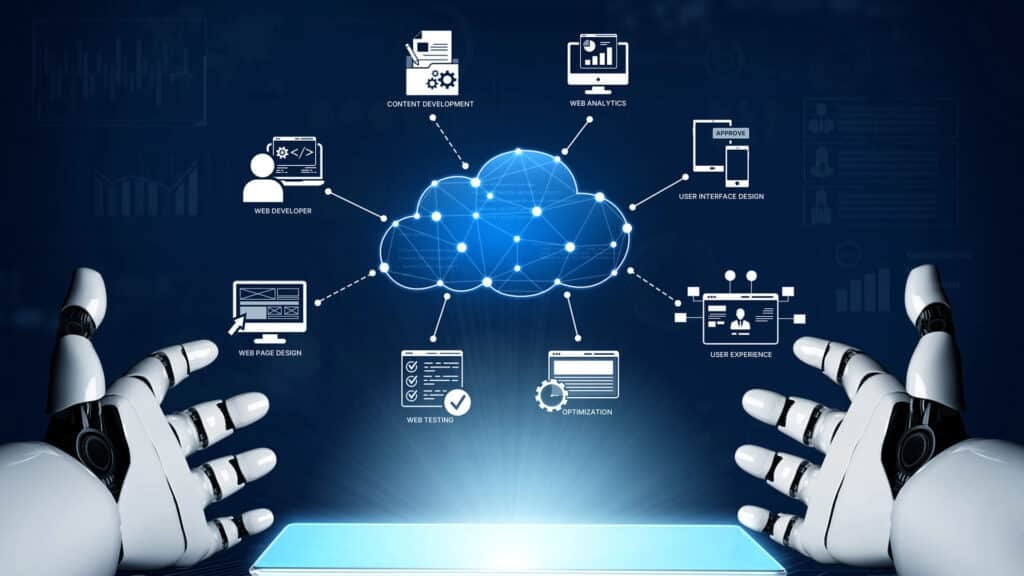The Six Five team discusses New York Times suing Microsoft & OpenAI over copyright.
If you are interested in watching the full episode you can check it out here.
Disclaimer: The Six Five Webcast is for information and entertainment purposes only. Over the course of this webcast, we may talk about companies that are publicly traded and we may even reference that fact and their equity share price, but please do not take anything that we say as a recommendation about what you should do with your investment dollars. We are not investment advisors and we ask that you do not treat us as such.
Transcript:
Patrick Moorhead: Okay, New York Times sues Microsoft and OpenAI. What is going on?
Daniel Newman: Well, we knew this was going to happen, so let’s just be really candid. One of the things from the moment that we started playing with ChatGPT, Bard and any other large language model that was made publicly available was, what does this mean for attribution? And how does that work going forward? And how do companies that used to get clicks make money? If you’re a publisher and you can get the 300 word abstract of the latest New York Times op-ed without actually having to go or pay for The New York Times, what do we do? And so Pat, I don’t know about you, but I’ve said from the day we went and I really started to see the power of generative AI, I think when I went to the Microsoft first one back in February. I’d seen it before, but I really started to see how it could help a vacation plan come to life or it could provide a abstract on a big long health report.
I said, “Oh, this is going to get really interesting.” I said, “What happens with all this copyrighted material? How does it prioritize what material gets used? When material gets used, is it clearly demarcated from the content that it’s creating? Meaning what’s the source of material?” And so as a matter of time, what ends up happening is people are going to start reading abstracts and summaries on GenAI. And what they’re not going to do is click over to websites. And if you’re The New York Times or any other publisher and people stop clicking over to your site, guess what happens? Your advertising gets destroyed. And if your advertising gets destroyed, then your business model gets destroyed. And so by the way, Pat, I’ve said from the onset of this thing too, that this is going to be a test for Google. And hold your thought here, but Google’s model is you drive traffic, clicks and advertising and people pay to advertise against certain searches.
Well, same thing there. If you can go to an LLM and you can get the information summarized in a ChatGPT or Bard, how do they get advertisers to pay for that? And so basically what we’re looking at here is not so much about just The New York Times and OpenAI. What we’re really looking at is an inflection point and the beginning of setting a precedent around copyrighted and privately owned content, and how that content is protected on behalf of those that publish it, those that invest money. You and I can relate, we invest a lot of money in our analyst teams to create content. And we want to be able to drive views and reads. And now what happens in an LLM can crawl all of our content and it could share in an abstract our analyst viewpoints on something. And it’s possible our analysts won’t even get proper credit that their content was used in a tokenized response in an LLM.
So this is going to be really tricky, but here’s two things I think are going to come from it, and as we start to warm up for our predictions pieces. But first thing that’s going to come from it is this is going to be a massive moment in terms of setting precedent. And remember the genie’s already out of the bottle, so we’re not going back. I heard some really dumb punditry that this could be the end of AI. Meaning they’re effectively like, “If The New York Times wins, everybody’s going to stop.” We are not going to stop, this is not going to stop. So what’s going to have to happen though is there’s going to have to be an attribution and a compensation model. Because basically what’s happened is the entire world have become citizen journalists and creators of content that these LLMs are crawling and that is becoming product.
And that product needs to be monetized, so there will need to be an agreement created between OpenAI and every other language model that crawls the internet and uses the content to one, provide proper attribution. And two, every time it uses the content to create a response, there needs to be some sort of fractional pennies of compensation that’s going to go back to the publishers, the content creators, and the originators. Because it won’t just be written content, it’s going to be graphics and videos, and it’s going to be imagery, but that’s where it’s at. This is a big moment, it’s an inflection point, it was bound to happen, this will continue. And by the way, this is why some companies got so into the indemnification of LLMs. And this is also why we talk about the real value being in the private data that you have or the unique data that you have because the publicly available data is table stakes.
Patrick Moorhead: Man, you’re on fire on this one.
Daniel Newman: Was that good?
Patrick Moorhead: It’s almost like you’ve thought about this one a little bit. So I worked for a company called AltaVista, which was the top-rated search engine before Google came in and destroyed everybody. And there was a lot of conversations, including my stock grants. Yeah, it destroyed those too. But it was self-inflicted because AltaVista had this crazy idea of having unfiltered search results and what you’d get is a bunch of university junk as opposed to Google that would parse it for consumers. So anyways, we had the same conversation back then, which was, “Hey, will content providers allow us to crawl their websites?” And there were some legal challenges, and what ended up happening is once proper attribution was sent back in the terms of search links, and when this kind of bid per link, bid per click, cost per click advertising model came in, everything settled down.
And then about 10 years later when Google started to do little, it was called snippets, there was this conversation as well and that got resolved. This is pretty much the same thing with a little bit of a twist. And here’s what I mean by that. When it comes to the text version of what’s coming back, I do believe that if proper attribution is provided, people will link and tell me when you’re trying to… When you’re using something like ChatGPT or Bing Chat or Copilot, whatever we’re calling it this week, or Bard, you’ll typically double click if you want precision because you want to learn more about that. And I do see that as continuing into the future, so I think that that’ll probably be resolved there. What I think is going to be really, really sticky though is when it comes to video, audio and photos.
It’s miraculous how when you type a prompt into Midjourney about your favorite Star Wars character, how much it looks like Star Wars content. It literally looks like, hey, they ingested all the videos, all the movies, all the photos, and they’re essentially spitting that back and they’re making money on it. That I think is going to be problematic. If you had a jury trial, you can imagine putting up Chewbacca on Midjourney and Chewbacca from the Star Wars content side by side, and it’s literally exactly the same, maybe a little bit more yellow in Mid Journey Chewbacca eyes that they’re going to shut that thing down.
And on the tech side, Dan, I really did a lot of thinking and okay, maybe I talked to an IP lawyer in the family as well. Which says, “Hey, as analysts, we digest content that’s copyrighted and people pay us to give our opinion on it, right? Whether it’s end users and enterprises or the tech company.” How is that different from OpenAI ingesting copyrighted content and giving a summary back and charging you for it? Dan, I don’t know if you have thought through that. And the only difference is the person processing it in the analyst case is a human and the other is a machine. We’re all charging for the output of that summary and that opinion. Kind of makes you think.
Daniel Newman: Well, if you can get them to pay the same and not actually have to sit through the inquiry, that could scale nicely. So you’re talking about if you invented the future AI. Well, that’s interesting.
Patrick Moorhead: Well, actually what I’m thinking about is the difference between what we do today as analysts, where we ingest content that’s copyrighted, a press release, a PowerPoint, right? It has trademarks all over it. And we write something and we get paid for it. It’s kind of the same, the only difference is humans are processing it and outputting it versus a machine.
Daniel Newman: The value is in the person that produces it.
Patrick Moorhead: Yes. Yes.
Daniel Newman: And so that’s the thing is, I guess the two sides of this is the New York Times pays for someone that’s a reputed, respected opinion or voice, that’s the concept. And then they create it, and then the system uses it to create a summary that doesn’t truly attribute where that knowledge came from. And so attribution just becomes really important. But I also believe in a world where information becomes more easily created and digested that the person that creates it actually becomes increasingly important.
Patrick Moorhead: Yeah.
Daniel Newman: The role of the influencer, and when I say that in an affectionate way, not in a critical way, is hey, an author, a journalist, an analyst, a pundit, they’re creating the backhaul of information that the web is processing to simplify the distribution. It’s complicated, Pat, it’s not straightforward.
Author Information
Daniel is the CEO of The Futurum Group. Living his life at the intersection of people and technology, Daniel works with the world’s largest technology brands exploring Digital Transformation and how it is influencing the enterprise.
From the leading edge of AI to global technology policy, Daniel makes the connections between business, people and tech that are required for companies to benefit most from their technology investments. Daniel is a top 5 globally ranked industry analyst and his ideas are regularly cited or shared in television appearances by CNBC, Bloomberg, Wall Street Journal and hundreds of other sites around the world.
A 7x Best-Selling Author including his most recent book “Human/Machine.” Daniel is also a Forbes and MarketWatch (Dow Jones) contributor.
An MBA and Former Graduate Adjunct Faculty, Daniel is an Austin Texas transplant after 40 years in Chicago. His speaking takes him around the world each year as he shares his vision of the role technology will play in our future.







